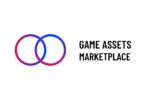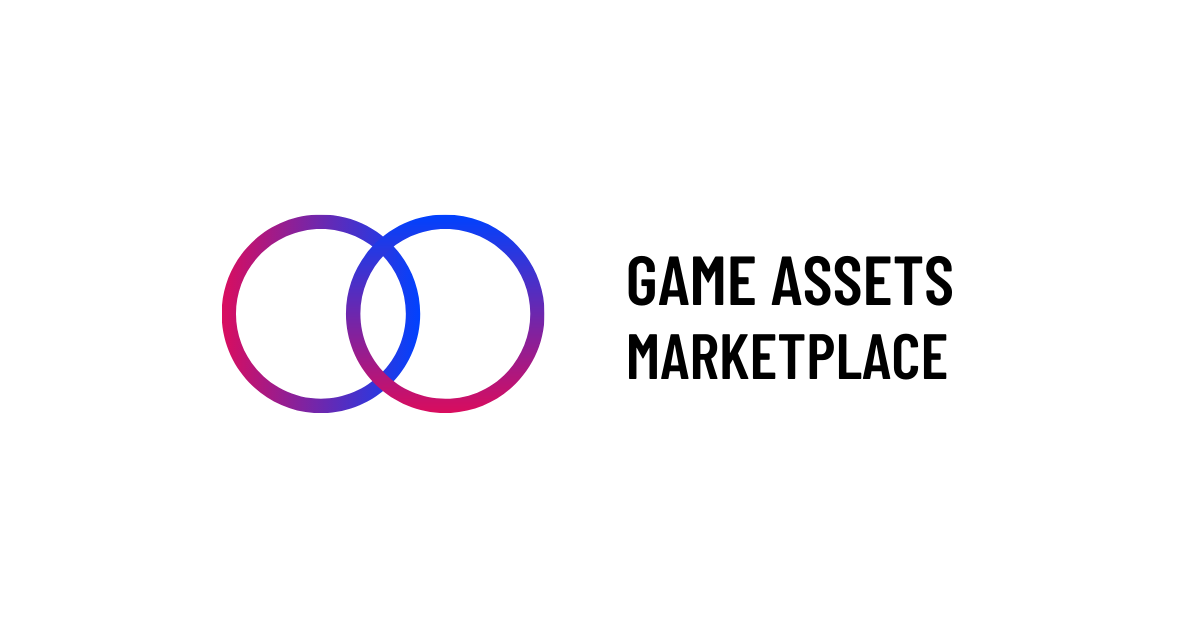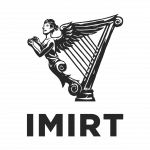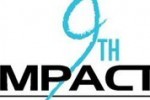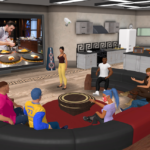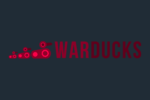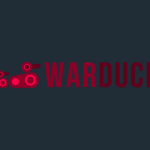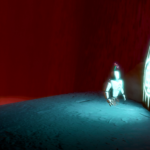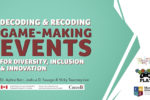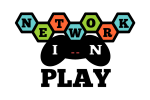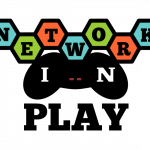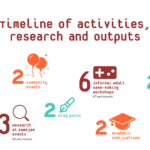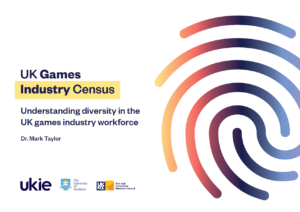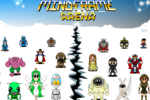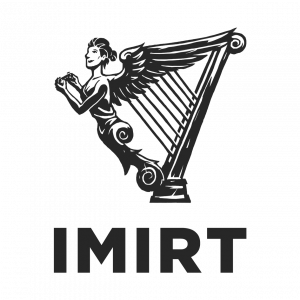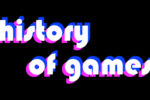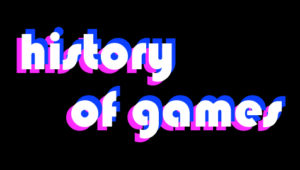Aphra Kerr and Vicky Twomey-Lee explore how to make game events more diverse and inclusive.
The games and technology industries are fond of saying that they have a pipeline issue. They argue that there are not enough people studying and entering the industries, and their solutions have focussed on promoting educational and employment opportunities. Advertisements of women in white coats, persons of colour in hard hats and the ill-fated European campaign ‘Science: It’s a Girl Thing’ have all tried to break down the perceived stigma around working in tech.
The pipeline metaphor is catchy but it is misleading. It presumes that the issue with diversity is simply one of spending more on promotion of the working opportunities than a wider structural and cultural issue. But fancy imagery is not going to break down the structures and cultures that are reproducing the marginalisation of minorities and others in technology.
The flow of water into the pipeline is not only slow, it is also leaky. Many leave the industry, and this leaves it with a workforce that skews young and inexperienced. The metaphor also ignores the lack of diversity in many industries and occupations. It is hard to address recruitment and retention when you are simply not recruiting and retaining a diverse range of workers. This week we will see a range of events to mark international women’s day – the challenge is turning these events into meaningful change throughout the year.
The Persistent Low Levels of Females in Games and Discrimination
The pipeline metaphor and the skills shortage debate conveniently ignores the diversity of people entering the technology industries. Indeed, many industry surveys and companies in Ireland don’t collect, or won’t reveal, the diversity of their workers. The Oldsburg Nord City report on the audio-visual industries in Ireland estimates that there are approximately 16,930 full time equivalent workers in 2016 in Ireland and 2,000 in the games industry, of which only 150 worked in development. We don’t know anymore about these people. We simply do not have any demographic data on these workers (see https://www.imirt.ie/industryreports/).
Creative industries and games industry data in the UK is more comprehensive. The latest census of the games industry in the UK had 3,200 responses (see UK Games Industry Census – Understanding diversity in the UK games industry workforce). It estimated that 10% of employees were Black, Asian or minority ethnic (BAME) and 28% were female across all occupations. This findings puts female representation at well under the national average of all those in work, roughly equal to those working in film and television in the UK and above that of the general IT/software sector. It highlights the persistent low level of females working in certain parts of the creative and cultural industries and in technology.
And what is working in these industries like for those who do enter? Developer satisfaction surveys conducted by the International Game Developers Association in North America point to ongoing workplace challenges including discrimination, overwork, unpaid work, employment volatility and high staff turnover (see https://igda.org/dss/). Many companies have no formal equality policies or complaints procedures. In North America there are also widespread differences in pay across occupational roles. For example, programming roles are overwhelmingly male but also the most highly paid. These are what academics often call structural issues – and we need to work harder to change them.
Refiguring Innovation in Games
In 2015 we became part of an international networking project called ‘Refiguring Innovation in Games’, funded by the Social Sciences and Humanities Research Council in Canada. The focus of the project was on diversity, inclusion and equity in the games industry and culture and addressing the structural challenges identified above. A key part of this project was its focus on equity and the adoption of feminist theories and methodologies. The project brought together researchers and community organisers in Canada, North America, the UK and Ireland (see http://www.refig.ca/).
ReFiG focused on four areas: games culture, the games industry, formal and informal learning. Our project in Ireland focussed on informal games education and how informal games education events might challenge or reproduce diversity. We set up a ‘Network in Play’ of local academics, community organisers and others. The funded part of this project is just coming to an end (see https://gamedevelopers.ie/diversity/).
Researching Game jams in Ireland
Informal learning events are generally not formally accredited and not typically not classroom based. Informal learning can take place in formal settings, but we were interested in the burgeoning range of hackathons and game jams in cities and towns around the country. They are usually ‘open to all’. You just sign up online. Most are free to attend. Who was organising them, who was attending and what were they learning?
Game jams are a collaborative intense game making event where people form teams to work on digital or non-digital game making. They sometimes last all weekend, like the Global Game Jam, or as in our examples, they last one day. A theme is announced at the beginning of the day, and then teams are formed and people try to make something in line with the theme. At the end of the day people play each other’s games and often prizes are awarded. Game jams have been praised for being a useful way to learn content, technical skills and team working skills. They are sometimes seen as a pathway into games and tech education and a way to build local game making communities.
Yet we were struck by the fact that the attendees at the game jams we studied were not very diverse. In a previous feature on gamedevelopers.ie we reported on our initial findings on a game jam in Dublin, and subsequently we surveyed game jams in Cork and Limerick. Attendees at these events skewed male, young (18-25), white, and often the attendees were already studying or working in technology (see https://gamedevelopers.ie/the-diversity-game/).
Our conclusion is that games jams may be good opportunities for learning, but they are not necessarily good for diversity. If attention is not given to explicitly broadening attendance, and building an inclusive learning environment, then game jams and similar types of events may actually merely replicate highly individualist, competitive, temporary ‘crunch’ like working patterns. It is perhaps not surprising that competitive game jams developed in North America and were developed by people who already worked in technology jobs.
Of course not all game jams are like this. Some are explicitly designed to be diverse, to challenge cultural and political norms, and to create spaces for marginalised creators. However, the key point seems to be, that when informal events are organised without attention to diversity, they may simply reproduce structures and cultures of exclusion. As with many ‘open to all’ events, organisers may not think about, or may not have the resources and capacity to make the events diverse and inclusive.
Organising Diverse and Inclusive Technology Events
Organising diverse and inclusive informal educational events can face significant challenges. We organised creative workshops in interactive fiction, board game design and coding for games in Dublin and Galway and in each case we faced a range of challenges. If you are relying on the good will of others to provide venues, technologies and support, you will find yourself being asked to compromise on certain issues. Do you run the event if your venue is inaccessible to some, if the technology is locked down to the desks and only certain software programmes are available? How can you make sure that those with caring responsibilities can attend? Do you impose quotas to diversify attendance?
We wanted to include more women in our events and we achieved over 50% female attendees in our workshops. We wanted to include people with diverse creative backgrounds and skills in our workshops and we achieved that.
Your diversity challenges may differ from ours, but the key lesson we learnt was you need to identify who is missing from your events, or who is leaving early, and you need to actively work to address the reasons behind this. It is not enough to say your event is open to all and you have a Code of Conduct. You actively need to work to make attendance at your event diverse, reach out beyond your own online and offline networks to bring in new groups, and make your event a welcoming and inclusive space for everyone so positive word of mouth will bring in others.
Today we are publishing a free to download report and a 10-point roadmap to help organisers to think about the key issues you need to consider in order to make your games or tech event more diverse and inclusive.
Our 10-point roadmap considers the following ten issues and gives tips on how to address them:
* Time
* Space
* Publicity and Promotion
* Code of Conduct
* Cost to attendees
* Organisational Work/Labour
* Pedagogy of event
* Knowledge and expertise of tutors and attendees
* Technology choices
* Culture of event
This feature is just a taster of our work. Feel free to download the report, share widely and to get in contact with the authors for more details. We have written a number of academic chapters which analyse our findings and will be published over the next few months. We are happy to share these also if you wish to read more.
Informal learning environments take place in towns and cities around Ireland and the technology industry is particularly active in organising them. We all need to identify who and what is missing in our events if we are to address the diversity challenge in our creative, cultural and technology industries. Otherwise those pipelines will have low water pressure and leak for years to come.
Resources:
 Our Full Report (6 MGs) – NIP-PDFGraphics-FA
Our Full Report (6 MGs) – NIP-PDFGraphics-FA
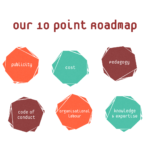
Our 3 page Roadmap – NIP-PDFGraphics-Roadmap
Refig safer Space Policy guidelines – http://www.refig.ca/safer-space-policy/
Network in Play Code of Conduct – https://gamedevelopers.ie/diversity/refig-nip-code-of-conduct
Bios:
Dr. Aphra Kerr is an Associate Professor in the Department of Sociology at Maynooth University.
Ms Vicky Twomey-Lee is a code, tech event organiser, mentor and advocate for diversity in tech. She is currently the Maker Advocate for Dublin Maker.
Acknowledgements
With thanks to Joshua D. Savage, the SSHRC, our collaborators and participants.



